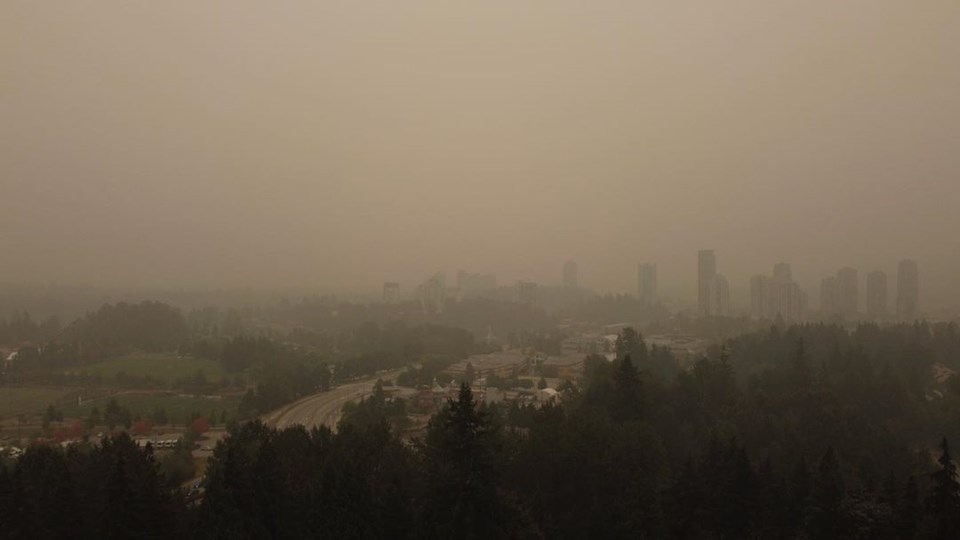High levels of fine particulate matter from wildfires in the U.S. continue to hover over Metro Vancouver as a special air quality statement, in effect for the past eight days, continues.
Environment Canada forecasts a “slight improvement” in air quality for the Tri-Cities today but predicts that ground-level smoke will remain, “possibly until later this week.”
Fine particulate matter, or PM2.5, includes airborne solids or liquid droplets with a diameter of 2.5 micrometres or less. They can easily penetrate inside a home because of their small size and can have significant implications for human health.
“Persons with chronic underlying medical conditions or acute infections such as COVID-19 should postpone or reduce outdoor physical activity until the advisory is lifted, especially if breathing feels uncomfortable,” advises the national weather agency.
Exposure to fine particulate matter is especially dangerous for people with lung and heart disease or chronic obstructive pulmonary disease (COPD). Also more vulnerable are those with asthma, diabetes and people suffering from respiratory infections like COVID-19, as well as the socially marginalized, children, infants, pregnant women and older adults.
A Metro Vancouver air quality station in Port Moody recorded 86.7 micrograms of fine particulate matter per square metre Tuesday morning at 10 a.m., down significantly from a high of 234.6 on Monday, but still three-times the maximum safe threshold, according to experts.
Air quality across Metro Vancouver has twice made the area the most polluted urban environment in the world over the last few days — once on Saturday and again on Monday. The region is currently tied with Seattle for the second most polluted city in the world after Portland, according to the air quality monitoring site iqair.com.
For a way to comprehend the effects of the wildfire smoke, an app called Sh**t! I Smoke converts air quality into the number of cigarettes a person will 'smoke' in a day simply by breathing the air.
The app, created by Brazilian-born designer Marcelo Coelho and Paris-born app developer Amaury Martiny, was inspired by Berkely Earth's findings about the equivalence between air pollution and cigarette smoking. According to the data, one cigarette per day (24 hr) is the rough equivalent of a PM2.5 level of 22ug/m3.
At the current levels of pollution, for example, the app notes that a resident of Port Moody would have inhaled the equivalent of over 27 cigarettes in a week.
There are ways you can cut down on your exposure to fine particulates.
One way to improve air quality inside is to deploy an air purifier with a HEPA filter, while those without access to such a device can seek a fresher breath of air in malls or libraries, anywhere where quality HVAC systems filter out the smokey particles.



